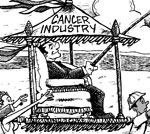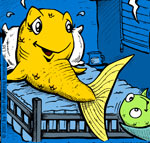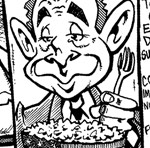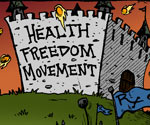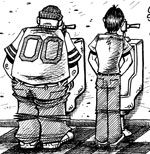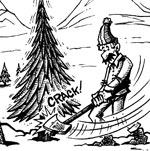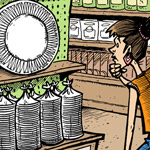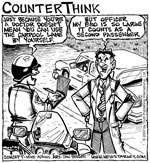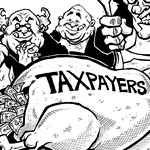Sleep Maintenance Insomnia and What to Do About It
| Share on Facebook | Share on Twitter | Share on Google+ |
Middle of the night insomnia, also known as sleep maintenance insomnia, is a condition of not being able to get back to sleep after waking up in the middle of the night, or waking up too early in the morning. Because most medications for insomnia are designed to encourage six to eight hours of sleep, taking a sleeping pill in the middle of the night to treat middle of the night insomnia is usually not practical.
What Causes Middle of the Night Insomnia?
Sleep maintenance insomnia usually results form some kind of physical discomfort or interruption to sleep. Treating the physical discomfort or limiting sleep interruptions may cure middle of the night insomnia. Underlying causes of this kind of sleep deprivation include:
- Breathing difficulties
- Hunger
- Joint or muscle pain
- Morning breath or bad breath, needing to get up to brush teeth in order to go back to sleep
- Skin inflammation
- Sleeping partner snoring or needing to get up during the night
- Tending to children during the night
- Thirst
- Upper respiratory infections
The older you are, the more likely you are to have to deal with middle of the night insomnia. People who are over 50 are also more subject to sleep maintenance insomnia due to obesity, sleep apnea, alcohol abuse, gastroesophageal reflux disease (GERD), arthritis, bipolar disorder, hot flashes (in women) or prostate problems (in men).
Why Don't Medications Help Middle of the Night Insomnia?
The problem with taking a sleeping pill in the middle of the night is that failure to get 6 to 8 hours of sleep after taking most medications results in drowsiness or daytime fatigue, with a sometimes dangerous propensity to accidents and injury. In the US and EU, no medication is approved for treating middle of the night insomnia, although zaleplon (Sonata) is sometimes prescribed despite the lack of approval. If someone were to take a different sleep medication for middle of the night insomnia and become dependent on it, then there could be a problem waking up in the middle of the night even without the pain or interruptions that usually cause the problem.
What Can Be Done About Middle of the Night Insomnia?
One of the best ways to deal with middle of the night insomnia is a technique called sleep restriction therapy. The principles of sleep restriction therapy are simple. If you stay up later than usual, you may be sufficiently tired not to be awakened by pain. This technique won't work for parents with small children, of course.
Another approach to middle of the night insomnia is stimulus control therapy. This just means that removing the health problem that causes nighttime comfort will also relieve the insomnia. For most people with this form of sleep deprivation, it's the best approach.
Selected Source:
Stone BM, Turner C, Mills SL, et al. (February 2002). "Noise-induced sleep maintenance insomnia: hypnotic and residual effects of zaleplon". Br J Clin Pharmacol 53(2): 196-202.
-
Skin CareMen Skin Care
-
Free ResourcesFree eBooks
-
The natural healing force within each one of us is the greatest force in getting well.Hippocrates
-
Featured Health Supplement
 If you find a product that is as effective as Total Balance, and is better value for money, let us know and we will give you a refund equivalent to your entire purchases of Total Balance…retrospective.
If you find a product that is as effective as Total Balance, and is better value for money, let us know and we will give you a refund equivalent to your entire purchases of Total Balance…retrospective.
-



